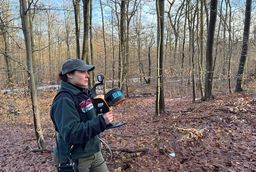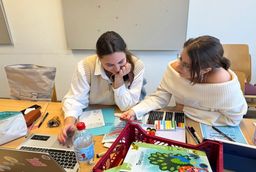Joint press release of the Centre for Climate Research Lower Saxony, the Lower Saxony Ministry for Science and Culture and the Volkswagen Foundation:
Urban areas react highly sensitively to the consequences of climate change, such as extended heat waves, severe storms or flooding. What specific links exist between the urban microclimate and the health of humans, animals and ecosystems? What are the effects of urban climate adaptation measures? These are the questions that the new UMEX-HOPE Climate Future Lab at the Lower Saxony Centre for Climate Research (ZKfN) will address in the future. The research project is now being funded with around five million euros from the joint funding programme zukunft.niedersachsen of the state of Lower Saxony and the Volkswagen Foundation.
Falko Mohrs, Lower Saxony Minister for Science and Culture: ‘The consequences of climate change are already being felt by all of us: heat waves, increased heavy rainfall, flooding, and polluted air masses – they pose a health risk, especially in densely built-up areas. The UMEX-HOPE project closes an important research gap: the holistic approach enables precise identification of risk zones and provides valuable insights for the planning and improvement of urban areas in Lower Saxony and beyond.’
The managing director of the Lower Saxony Centre for Climate Research, Katharina Zickwolf, on the funding decision: ‘I warmly welcome UMEX-HOPE to the ZKfN and look forward to working with them. The link between microclimate and health is a particularly promising and exciting field of research and offers numerous interfaces to our existing Climate.FutureLabs.’
Background:
The interdisciplinary and cross-location consortium behind UMEX-HOPE brings together scientists from Leibniz Universität Hannover, Technische Universität Braunschweig, Technische Universität Berlin, Tierärztlichen Hochschule Hannover and the University Medical Center Göttingen with a broad network of municipal partners.
UMEX-HOPE is the fifth Climate Future Lab at the Lower Saxony Centre for Climate Research and is part of the research focus ‘Microclimate in Urban Areas’. The existing Klima.Zukunftslabore DIVERSA, FoResLab, Open Cultures and Urban Climate Future Lab conduct research in the areas of ‘Impacts of climate change on the forest ecosystem’ and ‘Climate-friendly urban development and spatial planning’. The funding period for the Climate Future Labs is six years. The Climate Future Labs are coordinated by the office of the Lower Saxony Centre for Climate Research at the TU Braunschweig.
About zukunft.niedersachsen
zukunft.niedersachsen is a research programme of the Lower Saxony Ministry for Science and Culture and the Volkswagen Foundation. The majority of the funding for future.lower saxony results from the equivalent of the annual dividend on a nominal 30.2 million VW trust shares held by the state of Lower Saxony, which are subject to the profit transfer claim to the Volkswagen Foundation. According to the statutes, the funds are to be awarded to scientific institutions in the state of Lower Saxony. For this purpose, the state government presents proposals for use to the Foundation's Board of Trustees, usually in summer and autumn. In the reporting year 2024, a total of 618.7 million euros was available for future.lower saxony. Further information on ‘future.lower saxony’ can be found at www.zukunft.niedersachsen.de.
Further information on the ZKfN and the Klima.Zukunftslabor climate future labs:
Contact person

More Posts
All
Laser scans in the forest: measuring CO₂ between red beeches and deadwood
What a windless morning, 1,000 square meters of forest, and a laser scanner reveal about carbon storage.
4 min. Reading time
Job opening at DIVERSA
PhD position in the Vegetation Ecology and Biodiversity Conservation working group
1 min. Reading time
ZKfN guest at the “Get active now” seminar
The “Get active now” seminar brings together knowledge, commitment, and social practice.
2 min. Reading time